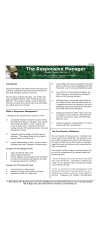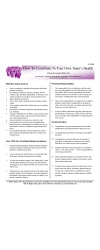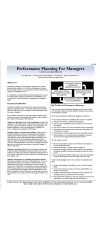(Third in a series on why small businesses should not rely on social media platforms, like LinkedIn and Facebook.
The first in the series is available here.)
The second in the series can be found here.
#16 Customizable Multiple E-mail Addresses
When you run your own website you can create as many email addresses with your own domain as you need.
That’s an advantage for branding, and ease of customer contact, and of course if you have employees or partners, each can have his or her own address.
Or you can specialize the addresses in other ways. Use one for product inquiries (e.g. [email protected]) and another for services (e.g. [email protected]). Since today’s email clients can aggregate across accounts, you can still access all your domain mailboxes at one time and in one central place.
And, again, if you use your email addresses on other sites, it’s a means of putting your domain name front and center.
#17 Creating The Impression Of Size
Your website is the customer facing part of your business, so the image you project is important. One thing most people don’t realize is that even a very small business, e.g. one person, can appear much larger and more trustworthy if its website is of significant size, depth and quality.
I can’t tell you how often I’ve received calls from potential clients and current customers who are a) absolutely shocked that the head of the company answers the phone, and b) that my company is a one person micro business.
I never set out to create the impression of size, but it’s a nice side benefit, because it also gets across the idea of stability (see #18)
#18 Creating A Sense Of Commitment And Stability
Websites require a degree of commitment that is not required to participate in social media. You have to buy a domain name, and web hosting services and pay for those on an annual basis. The actual costs are minimal, but when people visit, they see an ongoing business that is current, and active.
Once you have had your website for a number of years, potential customers can easily see that you are established and have a significant history.
#19 YOU Control Features On Your Site Including Visual Identity and You Can Focus Attention On What Is Important To YOUR Business
Social media platforms focus their visitors’ attention on what is important to the platform, ads, or subscriptions and the services by which those platforms make money so they can exist.
It’s often the case that what social media platforms want users to focus on is not what YOU want visitors to pay attention to.
Feature your products or services wherever you want. Use special animated featurs like sliders to display products, specials or sales. Or testimonials.
#20 Stop Working For Free
When you contribute articles or comments on social media, it’ easy to forget that you are working for the social media platform, and not getting paid for your contributions.
Of course, you HOPE that the value of your sweat labor is counter-balanced by the exposure and how it “can” contribute to your bottom line, but ultimately, you are working “on spec”.
Finally, Key Points About Websites and Social Media
- Social media and your website work TOGETHER so that the net outcome is much more valuable than one or the other alone.
- Use social media to drive traffic to your website, where you can control the user experience.
- The benefits from having a website do not come “automatically”. It needs to be designed well, and with content that’s valuable to your customers and potential customers.
- You need to be able to access the skills required to code your own website. Whether you learn those skills yourself (it’s not that difficult to do basic stuff), or hire out, there is a learning curve or a cost. However, you don’t need to spend huge amounts of money on a website. It’s often the case that you can hire a web design student for a fair wage — someone who is looking to build his or her portfolio.






